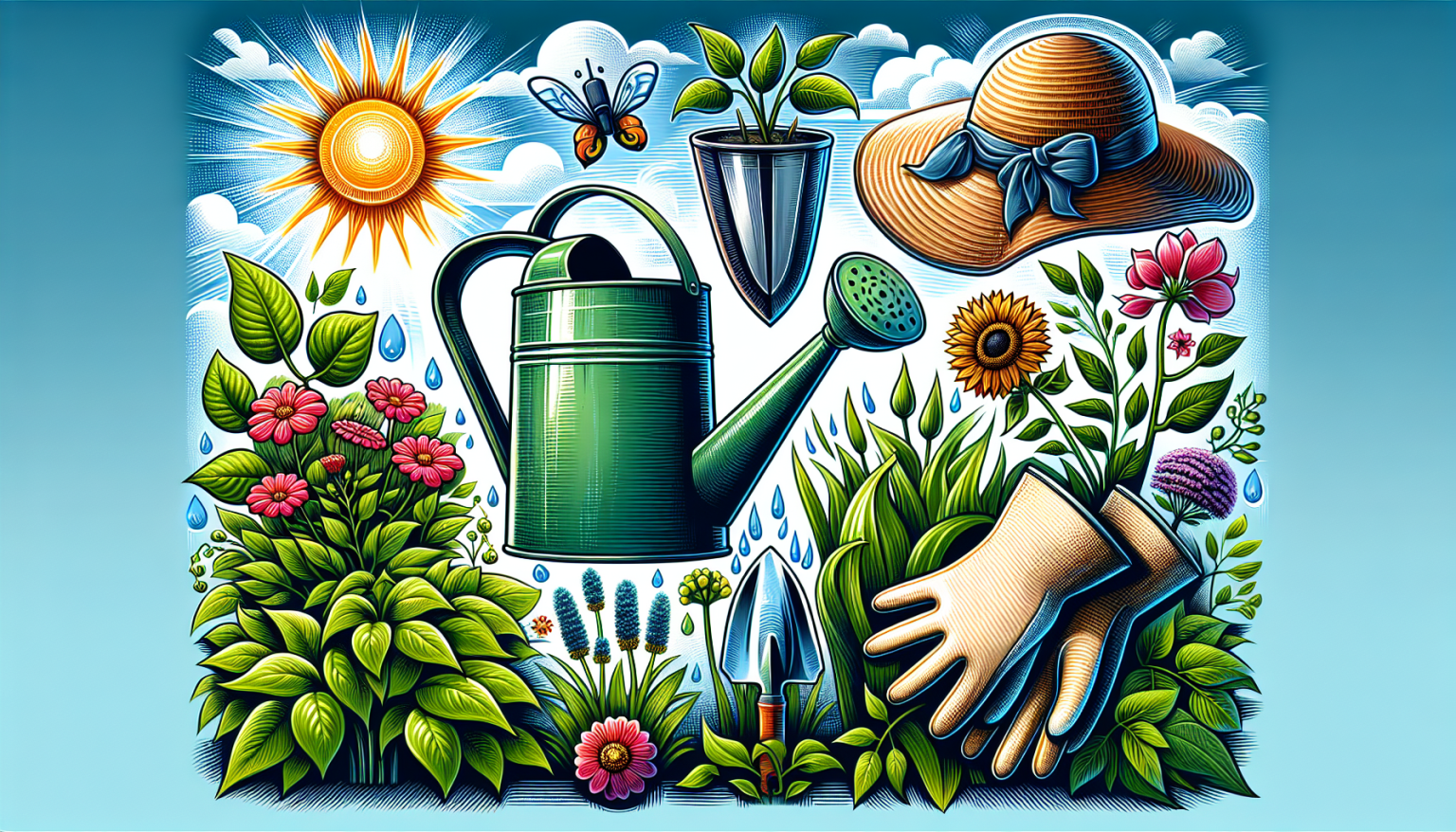Summer is a season that invites outdoor enjoyment, and for those lucky enough to have a green space at home, it’s the perfect time to make the most of your garden. However, high temperatures and prolonged sun exposure can pose a challenge to maintaining this personal oasis. Therefore, it’s essential to know some key tips for garden care during the summer months to ensure it remains healthy and vibrant.
Garden Watering Planning in Summer
Watering is crucial during the summer, as heat can cause rapid evaporation and dehydration of plants. It’s advisable to water early in the morning or at dusk to minimize excessive evaporation and ensure that water reaches the roots. A drip irrigation system can be an efficient solution to provide steady and uniform hydration to the garden. You should consider several factors:
- Every garden is unique and requires personalized attention. Factors such as the location of plants, soil type, and vegetation density are decisive in organizing an efficient watering system.
- The growth stage of our plants is essential. Some may need more water during certain development phases.
- The climate will influence the amount and frequency of watering. Warmer and dryer areas will require more frequent and abundant watering.
- Having an automatic irrigation system can be very helpful. Watering timers allow for setting optimal schedules and proper frequencies for each garden area.
- Using mulch (organic matter) helps retain soil moisture, reducing the need for watering and protecting plant roots from excessive heat.
Creating Shaded Areas in the Garden
Intense sun exposure can damage leaves and flowers, making it important to create shade areas, especially during the hottest hours of the day. Consider the sun’s path throughout the day and the location of existing elements like trees or structures that may provide shade. There are multiple options for creating shade.
- Parasols are a practical and economical solution, ideal for small spaces or where flexibility is needed. They come in a wide range of designs and sizes to fit any style.
- Awnings provide fixed shade and can be customized in materials and designs, fitting the home’s aesthetics.
- Pergolas are a more permanent and structural option. They can be made of wood or metal and integrate with the landscape, especially if allowed to be covered by climbing plants.
Pest Prevention
Summer can be a time of beauty for the garden but also a time of challenge due to the appearance of pests threatening the health and aesthetics of our plants.
Before taking preventive measures, it’s important to identify the most common pests that can affect gardens in summer, such as aphids, thrips, spider mites, mealybugs, ants, beetles, snails, caterpillars, slugs, and worms. These invaders not only damage plants by feeding on them but can also spread diseases.
To combat these pests, there are ecological methods that respect the environment and promote a healthy garden. Planting different species together can help repel pests, as some plants act as natural repellents to certain insects. Aromatic plants like lavender, rosemary, and basil are known for their ability to deter certain pests. Mesh, nets, and other types of barriers can protect plants from insects and other animals. Removing weeds, plant debris, and fallen fruits reduces places where pests can shelter and reproduce.
Proper Fertilization
Appropriate fertilization is essential to maintaining a healthy and vibrant garden during the summer months. With increased temperatures and sun intensity, plants require special care to ensure they receive necessary nutrients for growth and flowering.
It’s recommended to apply organic or slow-release fertilizer every 4-6 weeks, always following the manufacturer’s instructions to avoid over-fertilization, which can harm the plants.
Lawn Maintenance and Weed Control
A well-maintained lawn is essential for the garden’s aesthetics. Keeping an appropriate height when cutting and watering regularly will help prevent it from burning in the sun. Additionally, applying specific lawn fertilizer will contribute to its health and coloration.
Heat also accelerates the growth of weeds, so it’s essential to perform regular cleanings to prevent their spread and competition with desired plants. Follow these recommendations to enjoy a lush, vibrant garden even during the hottest months of summer.
